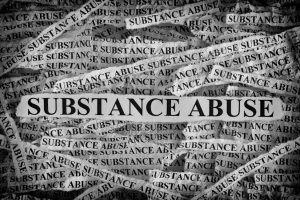Finding Support and Help For Substance Abuse During COVID-19
 The current coronavirus pandemic is a public health crisis affecting everyone in the country. There are some populations here in Texas, however, that may be more vulnerable than others. Our citizens who battle drug and alcohol addictions face challenges that can put them in risky situations for contracting or spreading the coronavirus, as well as a lack of access to the health care and social services they’ve come to rely on.
The current coronavirus pandemic is a public health crisis affecting everyone in the country. There are some populations here in Texas, however, that may be more vulnerable than others. Our citizens who battle drug and alcohol addictions face challenges that can put them in risky situations for contracting or spreading the coronavirus, as well as a lack of access to the health care and social services they’ve come to rely on.
The Texas drug and opioid epidemic doesn’t pause in times of crisis. With many outpatient facilities and support meetings shut down due to social distancing rules, addicts and those in recovery face even more challenges. Dr. Nora Volkow, director of the National Institute of Drug Abuse (NIDA) talked to CBS News about the issue.
“Social isolation does not just contribute to the epidemic of addiction, but it also increases the likelihood that people take drugs. The opioid epidemic in our country basically grew out of hopelessness and isolation. And to the extent that the pandemic is going to exacerbate the economic and social situation of certain people, this could increase the risk of people turning to drugs,” she said.
She also worries that with statewide stay-at-home orders, addicts who feel they have no other options could engage in criminal behavior and face drug arrests due to their physical addictions. “If you’re a person addicted to an opioid, and you cannot find drugs, you get desperate and you do very risky behaviors,” she told ABC News. “I mean, that is likely to be one of the consequences of people that need that drug – so the body’s experienced it as a need so if they don’t get it, they’ll actually consume something that otherwise they wouldn’t have if they had choices.”
Resources and support for substance abuse in Texas
Psychologists and counselors have many valuable recommendations for staying sober, connected, and safe during these uncertain times.
- Don’t attempt to detox or go cold turkey without medical supervision if you have serious alcohol or drug dependence issues – you could put your health in serious danger.
- Try to set ground rules regarding alcohol or drug use in your home during quarantine and communicate openly about your needs regarding sobriety.
- Consider creating video check-ins or support meetings with trusted family members and friends.
- If you have a sponsor, ensure you continue checking in on a scheduled basis.
In lieu of in-person gatherings, nationwide recovery groups like Alcoholics Anonymous and Narcotics Anonymous are running remote recovery meetings. Additionally, Unity Recovery offers a variety of remote support groups a day.
If you think you’re having a problem with alcohol or drug dependence, you can get help by calling the Substance Abuse and Mental Health Services Administration’s (SAMHSA) hotline at 1-800-662-HELP (4357). This is a confidential, free, 24-hour-a-day, 365-day-a-year information service, in English and Spanish, for individuals and family members facing mental and/or substance use disorders. SAMHSA provides referrals to local treatment facilities, support groups, and community-based organizations.
Finally, our criminal defense attorneys can help if you find yourself needing legal guidance during this time. Please don’t hesitate to contact the Mary Beth Harrell Law Firm so we can protect your rights and keep you safe. Call us in Killeen, Copperas Cove or Waco at 254-680-4655, or visit our contact page, and schedule your consultation today.

I’ve dedicated my legal career to defending my clients. I demand all the evidence. I investigate all the facts, the so-called witnesses and even the police officers. I make it my business to know the law. Cases can be won or lost before you even set foot inside the courtroom.
Read more about Mary Beth Harrell
